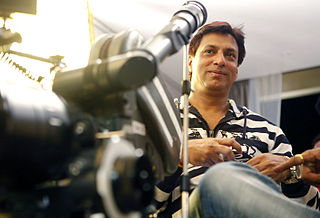A Quote by Madhur Bhandarkar
Indian cinema is no more limited to audiences in India. We have viewers all around the world, and hence, understanding the global perspective is a must. Cinema Beyond Boundaries would get the viewers and the filmmakers together and would help us in serving them with good quality cinema.
Related Quotes
After all, what is cinema? It is an interaction, a discussion that throws up questions and provides some solutions. The solutions might look simple, impractical or too fictionalised. But one must realise that viewers empathise with certain characters because they strike a chord with the viewers' needs and frame of mind.



































